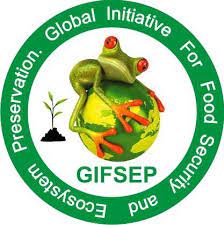Wildlife trafficking thriving online – CSO
A civil society group, Global Initiative for Food Security and Ecosystem Preservation (GIFSEP), has said the wildlife trafficking market has moved online due to tight measures deployed by governments to nip the crime in the bud. The Executive Director of GIFSEP, Mr David Michael Terungwa, who made this known in a report titled: “Wildlife Trafficking and […]

A civil society group, Global Initiative for Food Security and Ecosystem Preservation (GIFSEP), has said the wildlife trafficking market has moved online due to tight measures deployed by governments to nip the crime in the bud.
The Executive Director of GIFSEP, Mr David Michael Terungwa, who made this known in a report titled: “Wildlife Trafficking and Theft”, said criminals had also shifted from protected species to alternative species.
- Nigeria vs Ghana: CAF Doctor Dies At MKO Abiola Stadium
- Pupils sit on floor in 50% Nigerian schools – UBEC
Mr Terungwa said, “Like many markets, trade in wildlife and wildlife products is moving online. For example, the illicit pet reptiles’ trade increasingly involves the use of social media platforms. Criminals can be quick in switching online platforms whenever enforcement action is taken. This trade is particularly difficult to address due to its hidden nature, inconsistent regulatory frameworks and limited specialised law enforcement capacities.”
He explained that criminals had shifted from protected species to alternative species that had similar values in destination markets.
He said, “This sort of species replacement is very common in wood Markets, where even experts can struggle to distinguish between timbers of related species. The dominant rosewood species has changed many times over the years, shifting from Asian to African species.
“Similarly, African pangolin species were targeted after regulations tightened and populations were overexploited in Asia. Leopard, jaguar and lion bones have also emerged as substitutes in the tiger bone trade. At times, these substitutions are explicit, but often the buyers are not aware that a new species has been introduced.”
